By adding groups of users to Integrify, they may be used as recipients of tasks, granted permissions to administrative roles, given access to view reports and also assigned to Shared Tabs.
To add a new Group, select Groups from the Administration left navigation pane and then 'Add Group':

Give the group a Group Name, optionally add a Description, or select this group to be Dynamic:
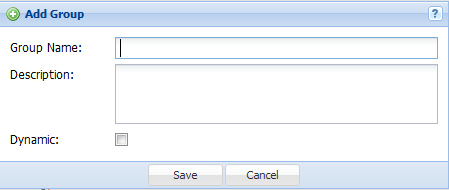
Once you have added your group, you can immediately add members to your new group or come back and select the Manage Members icon to add or remove members of a group:

In the example below, we have a created a standard (non-dynamic group) and we have added a member to this group based on individual users already created in Integrify. It is possible to add both individual users or groups as a members of a group. Just like adding recipients to a task, simply drag and drop the members you want into the right side list:
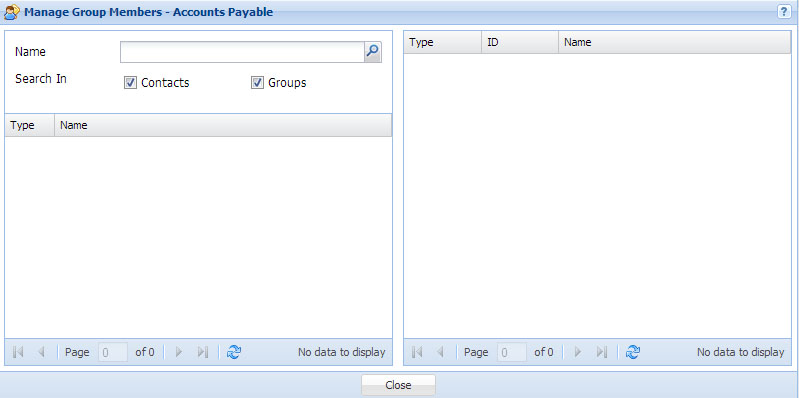
A secondary option when adding groups is to make it dynamic. In the following example, the Dynamic option was set to "yes" and the Dynamic SQLbox is displayed:
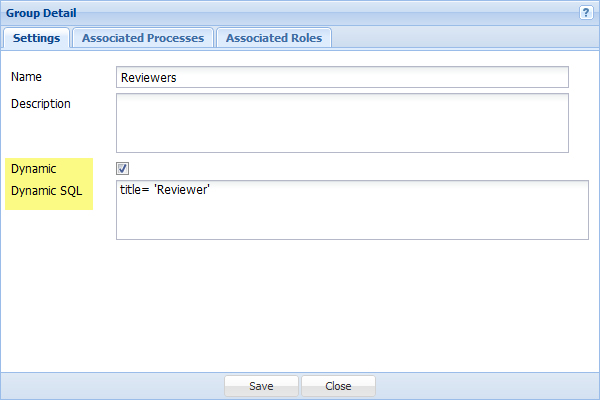
This particular group will retrieve all users with a title that equals "Reviewer" whenever the group is referenced. What is constructed in the Dynamic SQL text box is the essentially the WHERE criteria of a SQL statement that is executed the group is referenced. The Dynamic option allows you to filter on almost any contact profile attribute for a user(s) within Integrify. You may use the following fields when constructing a Dynamic Group:
- CONTACT_ID
- NT_ID
- FIRST_NAME
- MIDDLE_NAME
- LAST_NAME
- PHONE
- TITLE
- DEPARTMENT
- COST_CENTER
- DIVISION
- REPORTS_TO_GUID
- C_FIELD_1
- C_FIELD_2
- LOCATION
- ADDRESS1
- ADDRESS2
- CITY
- STATE
- ZIP
- COUNTRY
Once you add a group, you can select the group’s detail, then Associated Processes to see which processes are utilizing your group as a recipient of a task within the associated process.
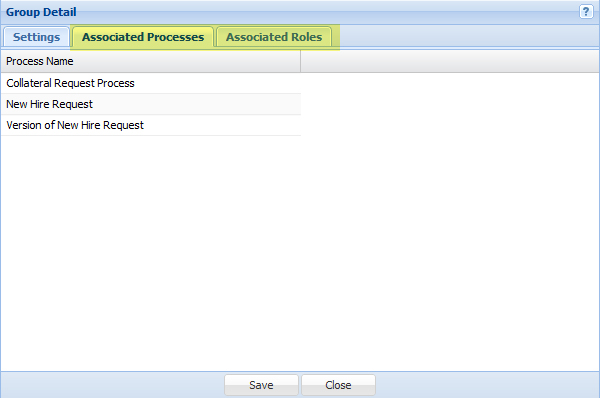
You can also selected Associated Roles to see which roles are associated with the group.
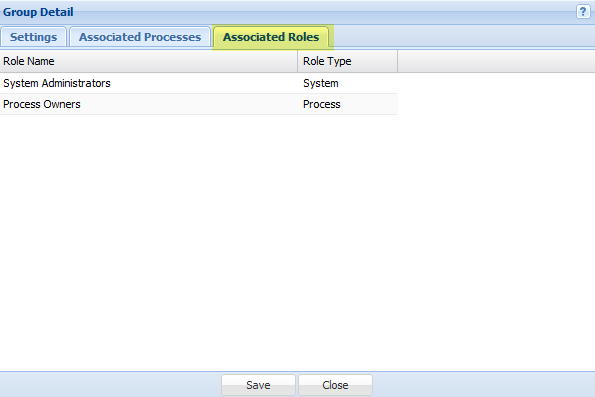
You can now add groups as recipients of tasks in your processes:

Last Updated on Tuesday, 27 August 2013 22:54
Comments